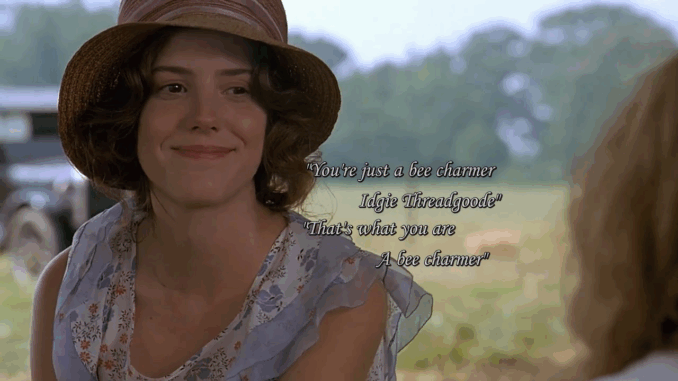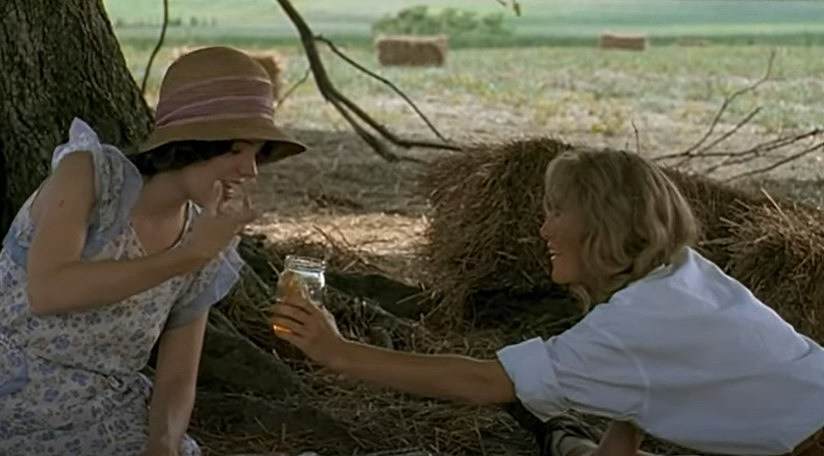
The 1991 film Fried Green Tomatoes, based on Fannie Flagg’s novel Fried Green Tomatoes at the Whistle Stop Cafe, is more than just a Southern tale of friendship and food. It’s a poignant, multi-layered narrative that weaves together themes of identity, loss, loyalty, and social justice, with deep roots in issues of gender, race, and aging. The film’s message resonates across generations because it confronts timeless human struggles while offering hope and resilience in the face of adversity.
Empowerment Through Connection and Storytelling
One of the most powerful messages in Fried Green Tomatoes is the healing, transformative power of friendship and storytelling. Evelyn Couch (played by Kathy Bates) begins as a timid, disrespected housewife who feels invisible. Through her connection with Ninny Threadgoode (Jessica Tandy), and the stories Ninny shares about the past—especially those involving the fierce and independent Idgie Threadgoode (Mary Stuart Masterson)—Evelyn begins to rediscover herself.
The film suggests that by listening to the stories of others, especially women who have fought for their own agency, we can reclaim our own voices. The past gives Evelyn the courage to change her present. This intergenerational exchange is key: storytelling preserves wisdom, and hearing the right story at the right time can spark transformation.
Feminism and Rewriting Women’s Roles
The message of Fried Green Tomatoes is also inherently feminist. The central women—Idgie, Ruth (Mary-Louise Parker), Ninny, and Evelyn—challenge the gender expectations of their time. Idgie refuses to conform to the traditional image of Southern womanhood. Ruth, while initially demure and submissive, finds strength in her relationship with Idgie and ultimately escapes an abusive marriage. Evelyn breaks out of her emotional cage and begins asserting herself in her marriage and life.
These characters highlight the importance of women supporting women, and how female solidarity can challenge oppressive systems. The film subtly critiques the limitations placed on women, both in the 1920s and in the 1980s, suggesting that resilience, love, and rebellion are necessary for personal freedom.
Hidden Queerness and the Courage to Love Differently

Although the film never explicitly states that Idgie and Ruth are in a romantic relationship, their bond is filled with deep emotional and physical intimacy. Many viewers and scholars interpret their relationship as a coded lesbian love story. Set in a time when open queerness could be dangerous, their love manifests in quiet, domestic ways—raising a child together, running a business, caring for each other.
This subtle portrayal reflects another core message: that love does not need to conform to societal norms to be real or valid. The film honors unconventional love, asking viewers to recognize and respect it, even when the world refuses to do so.
Race, Injustice, and Silent Resistance
The story of Sipsey (Cicely Tyson), Big George (Stan Shaw), and the Whistle Stop Café subtly explores racial injustice in the American South. Though the film softens the harsher realities of racism compared to the novel, it still acknowledges the inequality Black characters face. Sipsey’s quiet defiance—killing Ruth’s abusive husband to protect the family—is an act of radical courage. Idgie and Ruth, by raising George’s son and treating Black employees as family, exhibit a form of allyship, though imperfect and framed by their privilege.
The film doesn’t center race, but its message is clear: systemic racism exists, and justice sometimes requires people to act outside the law to protect those they love. The characters operate within a segregated society, but find ways to preserve dignity and humanity in their chosen community.
Dealing With Loss and Letting Go
Loss haunts every corner of Fried Green Tomatoes. Idgie loses her brother Buddy (Chris O’Donnell), Ruth dies of cancer, and Evelyn’s identity is lost in a sea of suburban monotony. But the message isn’t one of despair—it’s one of resilience. The film teaches us that grief is not the end of the story. Loss can become a doorway to growth, to deeper relationships, and to the rediscovery of self.
By the end of the film, Evelyn is not the same person. She has learned to stand up for herself, to find joy, and to face the future with strength—all because someone shared a story about a time, a place, and a group of people who refused to be broken by loss.
A Celebration of Southern Identity and Chosen Family
The setting of Whistle Stop, Alabama, with its slow trains, fried green tomatoes, and tight-knit community, becomes a symbol of chosen family. Even though society marginalizes many of the film’s characters—because of race, gender, age, or sexuality—they form their own families, rooted in care and loyalty rather than blood.
This alternative form of family provides comfort, security, and meaning. The message is clear: sometimes, the people we choose matter more than those we’re born to. That vision of community is what ultimately saves lives in the film.
Conclusion: A Call to Live Authentically
The message of Fried Green Tomatoes is both simple and profound: live authentically, love fiercely, and tell your story. Whether it’s through Evelyn’s late-life awakening, Idgie’s lifelong rebellion against conformity, or Sipsey’s silent defiance, the film honors those who refuse to give up.
It reminds viewers that the world can be cruel, unjust, and unkind—but within that world, there is space for laughter, friendship, courage, and love. And if we’re lucky enough to hear the right story, it might just change everything.
